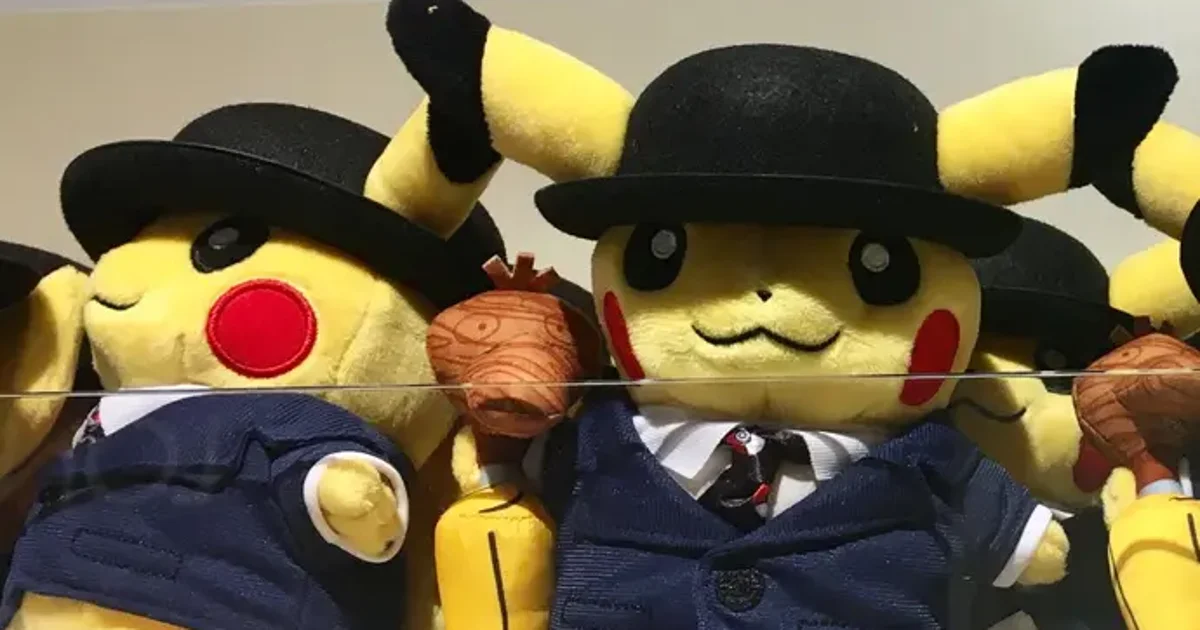Like A Dragon: Infinite Wealth in name alone implies certain themes. Greed. Exploitation. Instability. Appropriate topics for a series (once known as Yakuza, RIP) that so often has our heroes struggle to protect innocence in Japan’s criminal underbelly. But Infinite Wealth isn’t just a story about excess, it embodies that overabundance with an almost untrackable number of things to see, do, and level up – easily making for the series’ grandest entry yet while still (somehow!) tightening up its predecessor’s sloppy first attempt at an RPG.
This latest entry takes our loveable goofball Ichiban Kasuga overseas to the shores of Hawaii in search of his long-lost mother, where he also runs into the series’ often-resurrected main man Kazuma Kiryu, who happens to be there on a similar mission.
Playing the introductory three hours gives you the basic gist of what to expect for the next 50: violent stakes juxtaposed with some of gaming’s most zany side activities; considered cinematography and occasionally overindulgent cutscenes; and protagonists that are impossible to hate, all messily thrown together like loopy soba noodles spilled onto the floor. And, really, where else could you punch up two literal excavators while dressed as a dominatrix?
Hawaii is the perfect change of pace, taking the series’ knack for virtual tourism and dropping it onto summery shores and idyllic streets. Developer Ryu Ga Gotoku Studio isn’t content with just depicting the island as a de-stressing holiday for our heroes, though – at least not at first, as Hawaii’s regional problems quickly become the game’s most interesting hook.
Yakuza: Like A Dragon’s focus on homelessness and socioeconomic struggles extends to the tropical paradise, shining a light on the region’s manufactured beaches, growing housing crisis that pushes out natives, and the violent gangs, depicted here as the Barracudas – a yakuza-equivalent group who band together due to struggle, not blood ties.
Infinite Wealth is always at its most insightful when the outlandish ongoings are seen through Hawaii’s struggling lens, but unfortunately, that focus on native issues fizzles out before long in favour of the series’ recurring faces and usual criminal plots layered with compounding ulterior motives. This time it spans the Pacific, though.
That change of pace is especially irksome early on when the game seems content with retreading familiar territory, particularly in Kiryu’s half of the story which sees our hardened hero dealing with a seemingly terminal cancer diagnosis. Things do pick up for The Dragon Of Dojima about 25 hours in – as is RPG tradition – when the game elaborates on some of Like A Dragon Gaiden’s ideas and pushes the usually selfless legend to finally live for himself.
Kiryu’s bucket list sometimes dips into “‘member berry” territory with collectible memories that flip through recognizable scenes in a slideshow format. It feels like resurrecting a dead horse only to torture it with impending doom and turn its memories into content for content’s sake, especially for a character who’s said “farewell…for now” so many times. Again, excess.
But, on the whole, RGG eventually finds new ways to milk an old cow, thoughtfully stripping Kiryu of his attachment to honour, interrogating his almost 20-year-old gameography in a bleak, sombre way, and teaching the character how to lean on others in ways only a party-centric, turn-based RPG can.
Kiryu’s always been a lone wolf, delivering serious beatdowns and bearing burdens all on his lonesome, but the simple form of the genre nudges the character into more sentimental, vulnerable ground. Even when the game leaps in logic to justify their presence, Kiryu is always surrounded by a group that he needs to rely on should he survive the turn-based skirmishes in one piece.
Yakuza: Like A Dragon’s first attempt at turn-based brawling had some nice ideas, but it ultimately buckled under the grind of an overly long romp and mundane party compositions. Thankfully, RGG sharpens its RPG blade for Kiryu’s probably final send-off.
Strategic combos are actually possible this time around, mainly because you have limited control over your character’s movement, making it easier than ever to line up surprise back attacks or knockdowns into incoming traffic. And in a move to appease the button-mashing devotees, Kiryu can stomp around freely during his ultimate ability, delivering big swings to the bulky foes still stuck in genre-mandated stasis.
Jobs (classes) also make a return with new ones (like hula dancer and cowboy) joining old ones (like chef and street dancer) to cheekily parody your usual knight-archer-mage trifecta. These new roles are more defined than last time, each opening up fresh possibilities to pre-plan attacks, while still letting you mix and match skills from different jobs to build a winning strategy. Constantly delivering engaging fights with comical charm – vibrator weapons, lesbian crustacean summons, ink squid projectiles – Infinite Wealth’s combat has you feeling like a master chess player and a heavyweight boxer all in one.
As divisive as the series’ roleplaying pivot might have been, I’m enamoured with how it puts the spotlight on the always-charismatic cast, encouraging us to bond over scorching hot noodles, extravagant karaoke setpieces, or – double checks – crawling through dungeons that house stilt-wearing gangsters. Infinite Wealth constantly reaches new, outlandish heights, but the game’s most attractive fantasy lets you simply hang about with these guys and girls.
And boy, is there a lot to do with your new and old friendos. What’s perhaps most impressive is how Infinite Wealth maintains quality across its banquet of side quests, mini-games, treasure hunts, random endless dungeons, in-game social media friend request collectathons, and the like. This time it’s excessive in a good way. There are even off-brand Pokémon, Pokémon Snap, and Animal Crossing “mini-games” that could probably pull you in for a dozen hours each – and luckily both intersect with the game’s main progression systems so it doesn’t feel like you’re completely isolated from the rest of the code.
With so much to do, the game occasionally stumbles over itself to introduce infinite distractions to you – the first trip to Animal Crossing Lite traps you for about an hour, for example – but playing Infinite Wealth feels like walking around a buffet with the unstoppable hunger cheats turned on. There’s so much goodness to trial, and it’s usually in your power to ignore or indulge in whatever tickles your taste buds.
Also on the menu are the expected sub stories (side quests) that don’t quite stretch out in the preposterous ways they usually do, but this is a story that’s partly about a legend’s dying days, so some sobriety is called for, I reckon. There’s also an increased sense of introspection in some of these vignettes, which are still just as heartfelt as ever.
One introduces an American Kurosawa fan, for instance, who idolises the classic samurai films but also almost fetishes Japanese culture based on what he’s seen. It feels extra topical in an age where overseas art is more popular than ever, and even ties in thematically with the early fantasy-versus-reality exploration of everyday Hawaiian life. More so than ever, these sub stories feel like unpretentious life lessons, given to you by a drunk mate who may or may not be exaggerating a few details.
Like A Dragon: Infinite Wealth just feels like a lot. A lot of stories, contained and meandering. A lot of names to learn. A lot of people to punch. But ultimately, it’s a lot to smile about. Because while Infinite Wealth sometimes drops the ball when juggling so many threads, characters, and just-about-logical plot twists, it is undeniably still another endlessly endearing crime epic. RGG Studio tightens and flexes its newfound RPG muscles harder than the Chads and Brads you might find on Waikiki beach, fine-tuning the series’ turn-based fights and stuffing the map with enough interesting attractions to satiate even the most greedy among us.
A copy of Like A Dragon: Infinite Wealth was provided for review by Sega.


